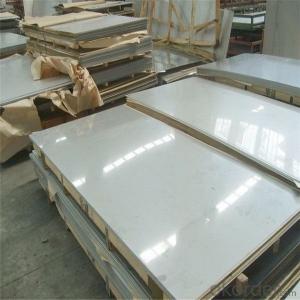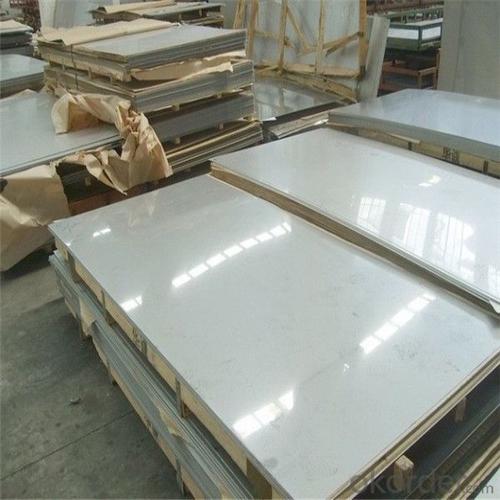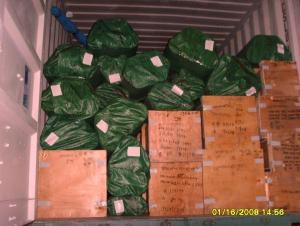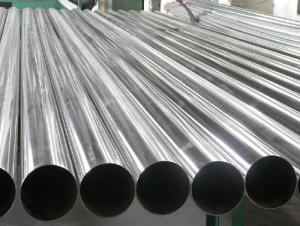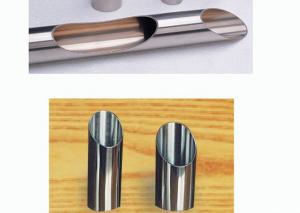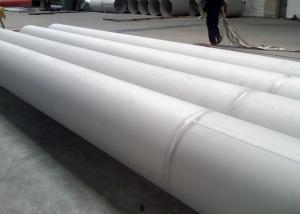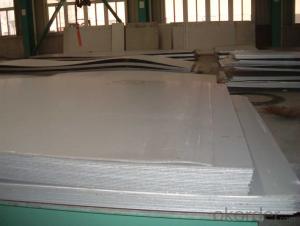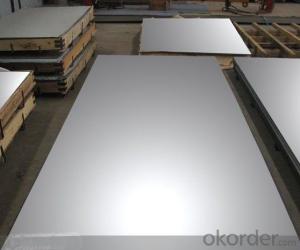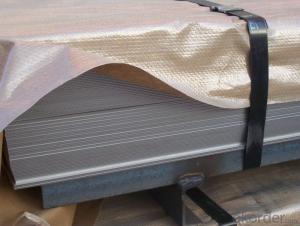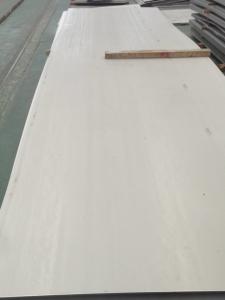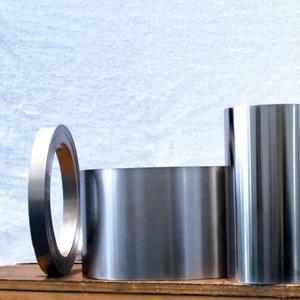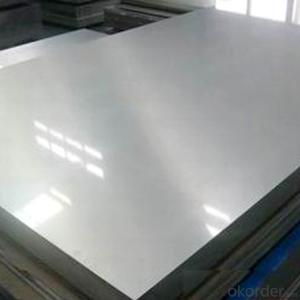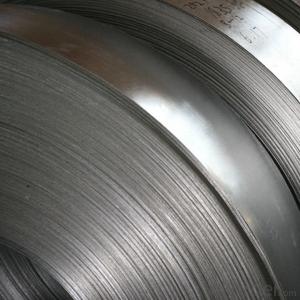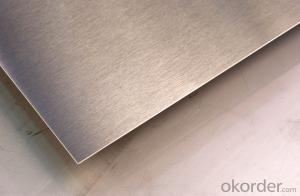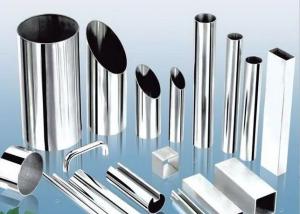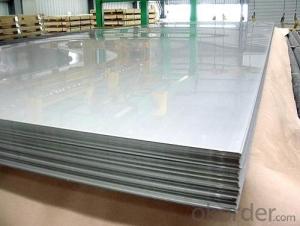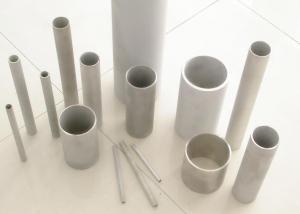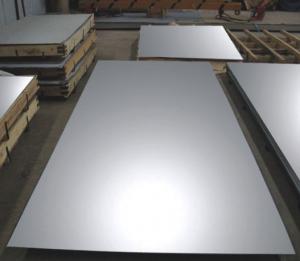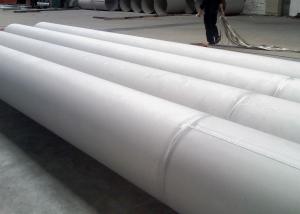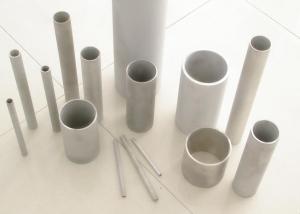316 Hard Stainless Steel Sheet Mirror Finish Hot Rolled
- Loading Port:
- Shanghai
- Payment Terms:
- TT OR LC
- Min Order Qty:
- 1 m.t.
- Supply Capability:
- 20000 m.t./month
OKorder Service Pledge
OKorder Financial Service
You Might Also Like
Specification
Mirror Finish Hot Rolled 316 Hard Stainless Steel Sheet
Name | Mirror Finish Hot Rolled 316 Hard Stainless Steel Sheet |
Grade | 304/316L/321/310S/2205 |
Thickness | 0.3mm-20.00mm |
Width | 1000mm-2000mm |
Length | 6m or as customers' request |
Tolerance | Thickness: ±0.02mm Length: ± 5mm |
Brand | BAOSTEEL,TISCO,ZPSS |
Standard | ISO,ASTM,SUS,GB etc |
Surface | 2B,BA,6K,8K,12K,No1,Polished, |
Place of origin | Wuxi China (mainland) |
Application | Decoration Industry Kitchenwave Building Elevator Upholstery
|
Packing | Standard export seaworthy package or as customer |
Payment terms | 1.30%T/T in advance ,the balance against the B/L copy 2.30%T/T in advance,the balance be paid by L/C at sight |
Surface--stainless steel sheet
Surface | Definition | Application | Photo |
| NO.1 | The surface finished by heat treatment and pickling or processes corresponding there to after hot rolling. | Chemical tank, pipe. |  |
| 2B | Those finished, after cold rolling, by heat treatment,pickling or other equivalent treatment and lastly by cold rolling to given appropriate luster. | Medical equipment, Food industry,Construction material, Kitchen utensils. | 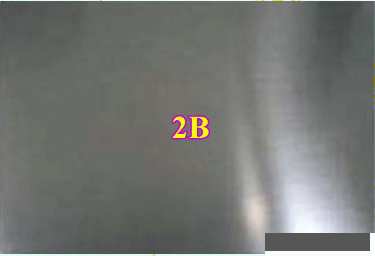 |
| BA | Those processed with bright heat treatment after cold rolling. | Kitchen utensils. Electric equipment,Building construction. | 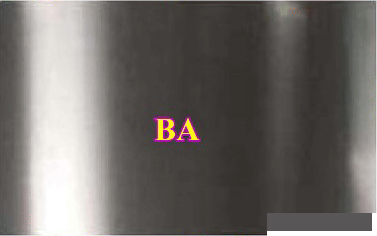 |
| NO.4 | Those finished by polishing with No.150 to No.180 abrasives specified in JIS R6001. | Kitchen utensils, Building construction,Medical equipment. |  |
| HL | Those finished polishing so as to give continuous polishing streaks by using abrasive of suitable grain size | Building Construction. |  |
Chemical Composition(%) of Stainless Steel Sheet
No. | Grade | Chemical Composition % | ||||||||||
C | Cr | Ni | Mn | P | S | Mo | Si | Cu | N | Other | ||
201 | 1Cr17Mn6Ni5N | ≤0.15 | 16.00-18.00 | 3.50-5.50 | 5.50-7.50 | ≤0.060 | ≤0.030 | - | ≤1.00 | - | ≤0.25 | - |
202 | 1Cr18Mn8Ni5N | ≤0.15 | 17.00-19.00 | 4.00-6.00 | 7.50-10.00 | ≤0.060 | ≤0.030 | ≤1.00 | - | ≤0.25 | - | |
301 | 1Cr17Ni7 | ≤0.15 | 16.00-18.00 | 6.00-8.00 | ≤2.00 | ≤0.065 | ≤0.030 | - | ≤1.00 | - | - | - |
304 | 0Cr18Ni9 | ≤0.07 | 17.00-19.00 | 8.00-10.00 | ≤2.00 | ≤0.035 | ≤0.030 | - | ≤1.00 | - | - | - |
304L | 00Cr19Ni10 | ≤0.030 | 18.00-20.00 | 8.00-10.00 | ≤2.00 | ≤0.035 | ≤0.030 | - | ≤1.00 | - | - | - |
310S | 0Cr25Ni20 | ≤0.08 | 24.00-26.00 | 19.00-22.00 | ≤2.00 | ≤0.035 | ≤0.030 | - | ≤1.00 | - | - | - |
316 | 0Cr17Ni12Mo2 | ≤0.08 | 16.00-18.50 | 10.00-14.00 | ≤2.00 | ≤0.035 | ≤0.030 | 2.00-3.00 | ≤1.00 | - | - | - |
0Cr18Ni12Mo2Ti | ≤0.08 | 16.00-19.00 | 11.00-14.00 | ≤2.00 | ≤0.035 | ≤0.030 | 1.80-2.50 | ≤1.00 | - | - | Ti5*C%-0.70 | |
316L | 00Cr17Ni14Mo2 | ≤0.030 | 16.00-18.00 | 12.00-15.00 | ≤2.00 | ≤0.035 | ≤0.030 | 2.00-3.00 | ≤1.00 | - | - | - |
Production Show
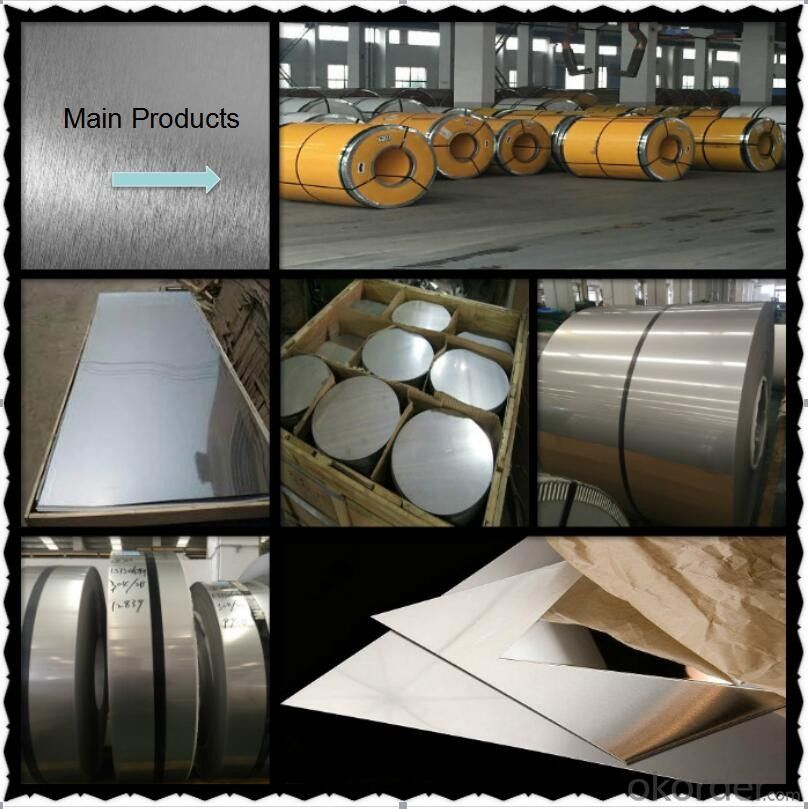
Applications
Be extensively applied to architectural decoration, such as elevator decoration, luxurious doors, outdoor projects, wall decoration, advertisement nameplates, sanitary ware, ceiling, corridor, hotel hall, shop facade.Kitchenware, food industry, electronic industry, medical equipment, etc.

Chemical Compositon and Physical Property:
| Type | Chemical Composition (%) | |||||
| 410 | C | SI | Mn | S | P | Cr |
| 0.03 | 0.32 | 0.25 | 0.001 | 0.019 | 12.21 | |
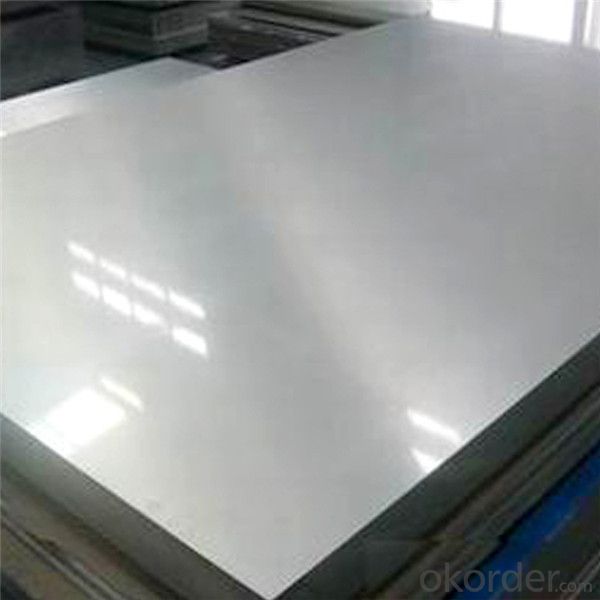
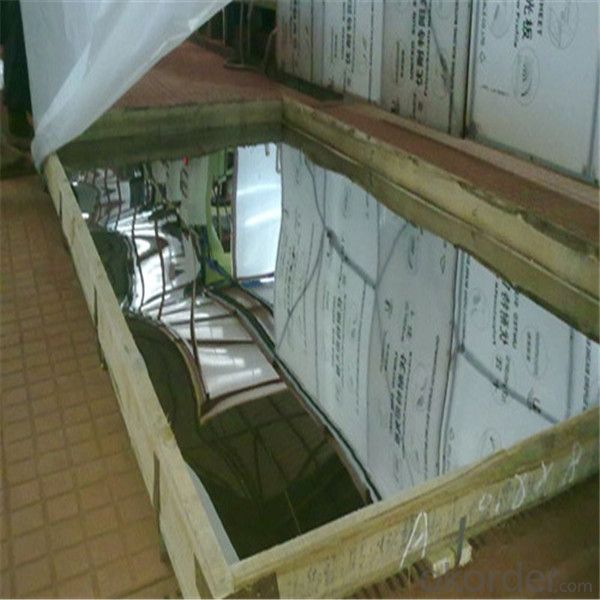
- Q: What is the maximum temperature that stainless steel sheets can withstand?
- The maximum temperature that stainless steel sheets can withstand depends on the specific grade or alloy of stainless steel being used. However, most stainless steel sheets can typically withstand temperatures of up to around 1500 degrees Fahrenheit (815 degrees Celsius) before experiencing significant structural or mechanical changes.
- Q: Are stainless steel sheets suitable for industrial applications?
- Yes, stainless steel sheets are highly suitable for industrial applications. Stainless steel is a versatile and durable material that offers several key advantages for industrial use. Firstly, stainless steel is corrosion-resistant, making it ideal for industries that involve exposure to moisture, chemicals, or corrosive substances. It can withstand extreme temperatures, both high and low, without losing its strength or structural integrity. Stainless steel is also highly hygienic, making it suitable for industries such as food processing, pharmaceuticals, and medical equipment. Additionally, stainless steel sheets are known for their excellent strength-to-weight ratio, making them ideal for structural applications in industries such as construction, automotive, and aerospace. They can be easily formed, welded, and fabricated to meet specific requirements. Overall, stainless steel sheets offer a combination of strength, durability, corrosion resistance, and versatility, making them highly suitable for a wide range of industrial applications.
- Q: Can stainless steel sheets be used for food processing or medical applications?
- Stainless steel sheets can be utilized in both food processing and medical applications. This material is highly durable and resistant to corrosion, making it an ideal option for industries that prioritize hygiene and cleanliness. In the food processing sector, stainless steel sheets are commonly employed for various purposes, including countertops, work surfaces, sinks, storage containers, and equipment. Its non-porous surface inhibits the growth of bacteria and simplifies the process of cleaning and sanitizing. Likewise, stainless steel sheets are extensively used in medical applications due to their exceptional resistance to corrosion, heat, and chemicals. They are employed in medical instruments, surgical equipment, implants, and other medical devices that necessitate high levels of cleanliness and sterilization. Stainless steel's biocompatibility and resistance to body fluids also make it suitable for implantable devices such as pacemakers, joint replacements, and dental implants. In summary, stainless steel sheets are the preferred choice for food processing and medical applications owing to their hygienic properties, durability, and corrosion resistance.
- Q: What are the different surface patterns available for stainless steel sheets?
- Some of the different surface patterns available for stainless steel sheets include brushed, mirror, embossed, and patterned.
- Q: Are stainless steel sheets suitable for power plant equipment?
- Yes, stainless steel sheets are suitable for power plant equipment. Stainless steel is known for its excellent corrosion resistance, high strength, and durability, making it a popular choice for various industries, including power plants. Power plants often have harsh environments with high temperatures, pressure, and corrosive elements, and stainless steel can withstand these conditions effectively. It also has good heat resistance and can maintain its structural integrity at elevated temperatures, which is crucial for power plant equipment. Additionally, stainless steel sheets can be easily fabricated and welded to meet specific design requirements for power plant equipment, making them a versatile and reliable choice.
- Q: Can stainless steel sheets be used for HVAC systems?
- Yes, stainless steel sheets can be used for HVAC (heating, ventilation, and air conditioning) systems. Stainless steel is a popular material choice for HVAC systems due to its excellent corrosion resistance, durability, and ability to withstand high temperatures. It is commonly used in HVAC applications such as ductwork, vents, and heat exchangers. Stainless steel sheets provide a smooth and clean surface, which helps in maintaining good air quality by preventing the build-up of dust, dirt, and other contaminants. Additionally, stainless steel is easy to clean and maintain, making it a suitable choice for HVAC systems that require regular maintenance and cleaning.
- Q: Can stainless steel sheets be used for electromagnetic compatibility?
- Yes, stainless steel sheets can be used for electromagnetic compatibility (EMC). Stainless steel has good electrical conductivity and is often used as a shielding material to prevent the interference of electromagnetic fields. It can effectively block electromagnetic radiation and provide a barrier against external electromagnetic waves. Additionally, stainless steel's durability and corrosion resistance make it suitable for long-term EMC applications.
- Q: How do you cut stainless steel sheets?
- Different methods can be employed to cut stainless steel sheets, depending on the sheet's thickness and the desired level of precision. Here are several commonly used techniques: 1. Manual cutting: Thinner stainless steel sheets (up to approximately 16 gauge) can be cut using handheld shears or tin snips. These tools allow for straight or curved cuts by applying pressure and slicing through the sheet. However, this approach may not be suitable for thicker sheets due to its labor-intensive nature and the potential for producing rough edges. 2. Power shears: When dealing with thicker stainless steel sheets, power shears or electric nibblers prove more efficient. These tools employ a sharp cutting blade or punch to make straight or curved cuts. They offer greater precision and require less effort compared to manual cutting methods. 3. Circular saw: Stainless steel sheets of increased thickness can also be cut using a circular saw outfitted with a carbide-tipped blade specifically designed for metal cutting. This method allows for straight cuts but may generate more noise, sparks, and heat. Consequently, appropriate safety measures, such as wearing protective goggles and gloves, should be taken. 4. Plasma cutting: Plasma cutting is commonly utilized for industrial or heavy-duty applications. This technique involves employing a high-temperature plasma jet to melt through the stainless steel sheet, generating a precise and clean cut. However, plasma cutting machines are expensive and necessitate specialized training in operation. Irrespective of the chosen method, it is crucial to prioritize safety when cutting stainless steel sheets. Always wear protective gear, such as safety glasses, gloves, and a dust mask, to safeguard against metal shards, sparks, and dust. Moreover, ensure that the sheet is securely clamped or supported to prevent any movement during the cutting process.
- Q: Are stainless steel sheets resistant to acids?
- Yes, stainless steel sheets are resistant to acids. Stainless steel is known for its corrosion resistance, and this resistance extends to acids as well. The chromium content in stainless steel forms a protective layer, known as a passive film, that prevents the metal from reacting with acids. This passive film acts as a barrier, making stainless steel sheets highly resistant to a wide range of acids, including both organic and inorganic acids. However, it is important to note that the level of resistance can vary depending on the grade and composition of the stainless steel. Some grades, such as 304 and 316, are particularly resistant to acids, making them suitable for various applications in industries such as chemical processing, food processing, and pharmaceuticals. Nonetheless, even with their resistance to acids, stainless steel sheets may still be susceptible to certain aggressive acids or prolonged exposure to highly corrosive environments. Therefore, it is essential to consult with experts and choose the appropriate grade of stainless steel for specific acid-resistant applications.
- Q: Can stainless steel sheets be used for electrical enclosures?
- Stainless steel sheets are indeed suitable for electrical enclosures. With their highly durable and corrosion-resistant properties, they offer excellent safeguarding for electrical components. Their strength allows them to endure harsh environmental conditions, making them applicable for both indoor and outdoor uses. Furthermore, stainless steel exhibits good conductivity and efficient heat dissipation, ensuring optimal temperature control within the enclosure. These remarkable qualities make stainless steel sheets a dependable option for electrical enclosures, guaranteeing enduring performance and protection for the enclosed equipment.
Send your message to us
316 Hard Stainless Steel Sheet Mirror Finish Hot Rolled
- Loading Port:
- Shanghai
- Payment Terms:
- TT OR LC
- Min Order Qty:
- 1 m.t.
- Supply Capability:
- 20000 m.t./month
OKorder Service Pledge
OKorder Financial Service
Similar products
Hot products
Hot Searches
Related keywords
